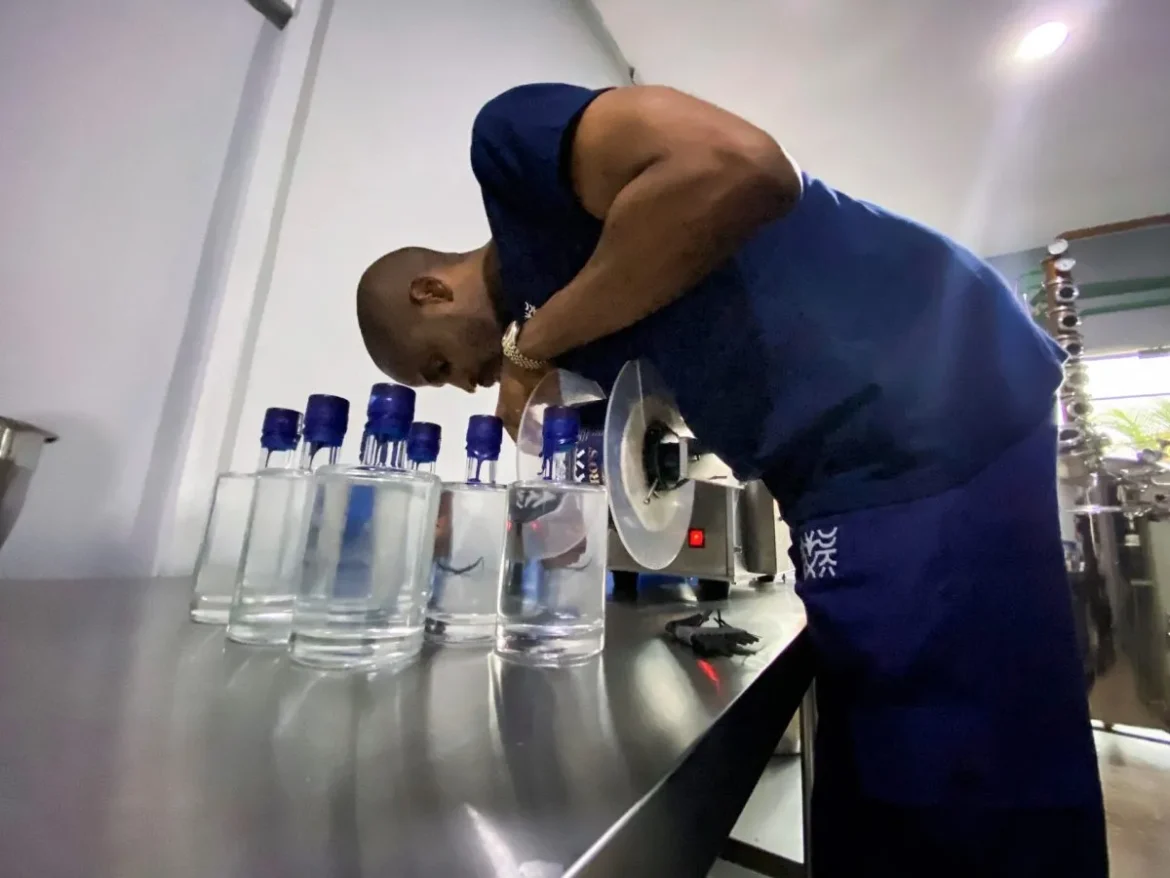Some African distillers are now turning traditional drinks into modern, premium products that are catching international attention. These new players in the global market are not only rebranding age-old local drinks but are also showing that Africa can compete in the world of fine spirits. From Nigeria to South Africa, these distillers are gaining ground abroad with African-inspired gins, vodkas, whiskeys, and even locally brewed palm spirits.
In Nigeria, one of the standout names in this trend is Pedro’s. It was co-founded by British-Nigerian entrepreneur Lola Pedro and her business partner Chibueze Akukwe. They took ògógóró—a local alcoholic drink made from distilled palm sap that used to be seen as a bush product—and gave it new life as a premium spirit. Today, Pedro’s is sold not only in Nigeria but also in Ghana, Kenya, the United Kingdom, and Australia. The drink, once sold in plastic bottles along street corners, now comes in stylish packaging and retails for about £60 per bottle in London, including in stores like Selfridges.
Pedro’s rise has not been an easy one. Lola Pedro and her team faced problems with Nigeria’s complex and unclear rules about alcohol production and export. Because ògógóró was mostly produced in informal setups for many years, setting up a proper, legal supply chain was difficult. However, the team pushed through the obstacles and is now showcasing ògógóró as a refined African heritage product that can stand beside any global spirit.
Another company making a name internationally is Spearhead Spirits. Founded by Chris Frederick and Damola Timeyin, the company is based in South Africa but draws inspiration from across the continent. Spearhead Spirits is behind brands like Bayab Gin, which is flavoured with African ingredients such as baobab and marula fruits. They also produce Vusa Vodka, made from sugarcane grown in Africa, and Mansa, a whiskey that celebrates African traditions. Recently, Spearhead Spirits secured a $3 million investment from Pendulum, a firm that supports Black entrepreneurs, to help them grow their brand in international markets.
These businesses are growing at a time when African cocktail culture is becoming more popular and celebrated. Events like the Ajabu Cocktail and Spirits Festival held in cities like Johannesburg and Cape Town, and the first ever Bartender Week in Kenya, are drawing attention to Africa’s rich heritage in drink-making and mixology. These events also serve as platforms for African distillers and bartenders to share their skills, network, and explore new business opportunities.
Experts say the African spirits market is growing fast. Reports suggest it will rise from $10 billion in 2016 to $16.6 billion by 2027. More Africans are choosing premium and locally made drinks over foreign brands. This growth has encouraged investors and entrepreneurs to take the sector more seriously.
These new African brands are not just about drinks—they are also telling African stories, supporting local farmers, and promoting cultural pride. Whether it’s ògógóró from Nigeria or baobab-infused gin from South Africa, these spirits are being reintroduced to the world with style, quality, and strong African identity.
The journey is still ongoing, but the success of companies like Pedro’s and Spearhead Spirits shows that with the right mix of innovation, storytelling, and business strategy, African products can thrive anywhere in the world.
